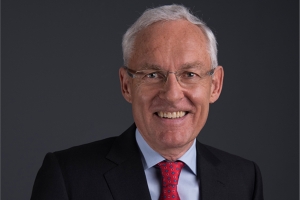


(Posted on 26/04/18)
Speaking today at Singapore Maritime Week, the Chairman of the International Chamber of Shipping (ICS), Esben Poulsson, said the adoption by the UN International Maritime Organization (IMO) of a comprehensive strategy to phase-out shipping’s greenhouse gases “should be more than sufficient to discourage those who mistakenly advocate regional measures which would greatly damage global trade and would not be effective in helping shipping to further reduce its total CO2 emissions.”
The ICS Chairman was commenting on the ambitious IMO strategy to cut the total greenhouse gas emissions of shipping by at least 50% by 2050, compared to 2008 – with an agreed efficiency goal, as an average for the sector, for a 40% improvement by 2030 compared to 2008, and a 70% improvement by 2050 – so that the entire sector will be in a position to decarbonise completely, consistent with achieving the 1.5 degree climate change goal identified by the UN.
“It’s important that governments recognise the enormity of what has been agreed by IMO. While the ultimate goal is zero emissions, a 50% total cut by 2050 is very ambitious indeed, especially when account is taken of current projections for trade growth” said Mr Poulsson.
“To put this in context, the aviation sector’s regulators have so far only agreed to hold its total CO2 emissions at 2020 levels, with no clear plan for absolute reduction. Moreover, compared to the 50% cut agreed by IMO, the commitments made by governments under the Paris Agreement with respect to the rest of the global economy will not see total CO2 emissions begin to reduce until the 2030s, while shipping’s total current CO2 emissions are already about 8% lower than ten years ago despite a 30% increase in trade demand.”
Mr Poulsson remarked “The shipping industry deserves great credit for persuading IMO Member States to respond to the Paris Agreement in such an ambitious manner. This includes the detailed proposals which the industry made about what the IMO strategy might look like within weeks of the Paris Agreement being adopted”.
“The shipping industry, very unfairly, is often criticised for foot-dragging. But this new IMO agreement makes it absolutely clear that shipping is now far and away ahead of the rest of the world economy in the scale of its ambition.”
ICS is confident that new technology will eventually deliver; whether through the use of fuel cells or batteries powered by renewable energy, new fuels such as hydrogen, or some other solution not yet anticipated.
“To be clear, while LNG and biofuels will probably form a part of the interim solution, the very high goals IMO has now set for 2050 can only be achieved with the development of zero CO2 propulsion systems” said Mr Poulsson.
The new IMO strategy includes a list of possible candidate measures to achieve further CO2 reduction while shipping is still dependent on fossils fuels, including additional measures that could be ready for implementation before 2023.
ICS is already now developing detailed input to IMO on all these proposals. But most controversial is further consideration of applying some kind of Market Based Measure (MBM).
The position of ICS is that it remains deeply sceptical of MBMs as a means of further incentivising CO2 reduction. Fuel is already by far the largest cost for shipowners and this is expected to increase dramatically as a result of the new mandatory global IMO sulphur cap in 2020.
“As IMO debates how best to implement its strategy we would much prefer that it concentrates on further technical CO2 reduction measures, not least promoting the development of zero CO2 fuels.” said Mr Poulsson.
“However, should IMO decide there is a political need to develop an MBM, the clear preference of the global industry would be for a bunker fuel levy payable to some kind of IMO climate fund. If such a levy was developed, the funds should be deployed to support research into new low carbon technologies or to support the roll-out of the expensive new bunkering infrastructure that will be required to supply zero CO2 fuels.”
AtoB@C Shipping, a subsidiary of ESL Shipping, has announced the successful delivery of Fleximar, the... Read more
Western Bulk, together with reputable Norwegian partners A/S J. Ludwig Mowinckels Rederi, Premium Maritime... Read more
Pacific Basin Shipping Limited, one of the world’s leading dry bulk shipping companies, has announced... Read more
Columbia Group anticipates a period of strong expansion as an increasing number of international shipowners... Read more
Norse?Ship Management has expanded its use of Smart Ship Hub’s high frequency sensor data and... Read more
As the maritime industry gears up to welcome the IMO’s STCW bullying and harassment training amendments... Read more
NORDEN has acquired the cargo activities of Taylor Maritime in Southern Africa (previously operated... Read more
Philippos Ioulianou, Managing Director of EmissionLink, has warned the IMO’s decision to delay... Read more
VIKAND has highlighted the need for cultural change in the maritime sector as reports of bullying, harassment... Read more
The maritime industry is experiencing a period of significant transformation, driven by rapidly evolving... Read more